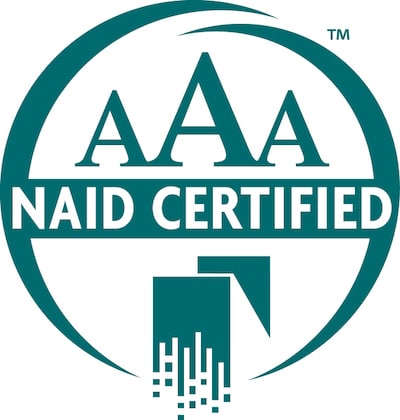Avoid These 3 Common Information Disposal Mistakes

1. Overlooking Personally Identifiable Information (PII)
It’s easy to overlook seemingly-harmless items while discarding documents. Surprisingly, everyday items can contain enough sensitive information to compromise your identity or accounts:
- Junk Mail: Dispose of it properly, as it often contains personal details like your name, address and credit card offers. Shred it to ensure complete destruction.
- Photos and IDs: Old badges or duplicate photos should all be included in the shredding process to prevent misuse by identity thieves.
- Travel Documents and Boarding Passes: Shred these to prevent thieves from exploiting your travel itineraries or personal details embedded in QR codes.
- Shipping Labels: Destroy labels on boxes or shipping documents as they may contain sensitive information. Simply recycling your boxes or shipping containers won’t fully protect your information.
- Sticky Notes: These innocent notes and slips of paper often contain personal information like passwords, phone numbers, medical information and other personal information you want to recall. Don’t disregard their significance while disposing of them.
- Old Bank Statements: These contain your name, address, phone number, bank account numbers and information used to confirm your identity on the phone. Shred these items every time.
Instead of second-guessing what to discard, consider adopting a “shred-everything” policy to ensure complete protection. Shredding all paper items eliminates the risk of overlooking critical information and enables easy recycling.
2. Using a Personal Paper Shredder
Personal paper shredders, commonly found in homes and offices, have limitations that compromise their effectiveness:
- They can overheat, jam, or cause accidents by grabbing clothing, especially with inexperienced users. Many serious accidents involving adults, children, and pets have been reported.
- They are inadequate for shredding things like staples, paperclips, and hard covers.
- They fail to comply with data privacy laws, as they don’t provide you with a provable chain of custody and Certificate of Destruction. In addition, many personal paper shredders do not shred documents to the extent necessary for complete destruction.
- They are inefficient for destroying digital storage mediums like hard drives or company products.
Opting for professional shredding services proves to be more efficient and compliant with privacy regulations, outweighing the labor and cost associated with managing an office shredder.
3. Keeping Documents for Too Long
Every document containing PII has a designated retention period stipulated by state and federal laws. Exceeding this period poses risks because unshredded documents are susceptible to being seen, lost or stolen, which would violate compliance regulations. Timely destruction of documents ensures full protection of sensitive information.
ShredPro Secure: Your Trusted Solution
For guaranteed compliance with privacy laws, choose ShredPro Secure. As a locally-owned, NAID AAA Certified shredding company, all of our shredding services are compliant with federal and state data privacy laws, and we provide you with a Certificate of Destruction as proof in case you are audited. Say goodbye to your home shredder and contact us at 865-986-5444 or complete the form on this page.

